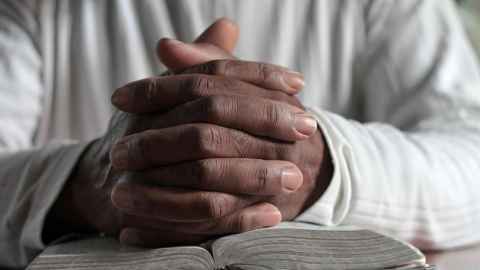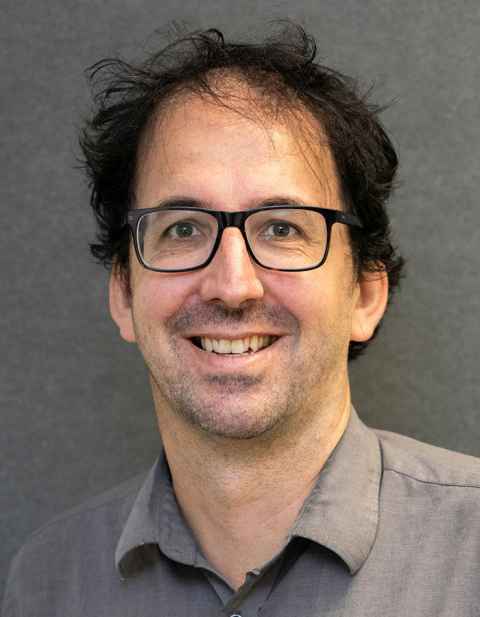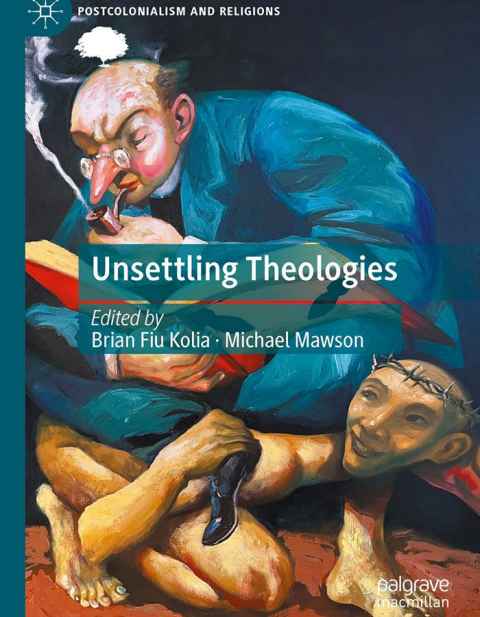Christianity and colonisation: can they be reconciled?
26 February 2024
A new book about Christianity and colonisation showcases fresh thinking from Indigenous and white scholars in an exciting area of theology.

If Christian missionaries were entangled with the dispossession of Indigenous peoples across the Pacific and the destruction of their way of life, where does that leave Christianity?
This wide-ranging question, and the resulting conversation between two co-editors, was the start of a book which showcases the creative ways scholars across the Pacific region are reflecting on Christianity and theology in the wake of colonisation.
Unsettling Theologies: Memory, Identity and Place is edited by Brian Fiu Kolia, lecturer of Old Testatment at Malua Theological College in Samoa, and Michael Mawson, the Maclaurin Goodfellow Associate Professor of Theological and Religious Studies at Waipapa Taumata Rau, University of Auckland.
It includes chapters from scholars of Samoan, Tuvaluan, trawlooway (Aboriginal), Pākehā and Tongan backgrounds, who engage with topics as diverse as the dawn raids in 1970s’ Auckland and the friendship between 19th century missionary Robert Maunsell and Governor George Grey; the latter which resulted in a legacy of structural educational injustice for Māori based on ideas about a ‘civilising mission’.
The book sheds light on some of the ways Māori, Aboriginal, Pasifika and white scholars have been appropriating and reworking religious ideas in light of contemporary challenges such as climate change, economic pressures, racism, mental health and exclusion from education, says Associate Professor Mawson.
“It’s for anyone who has an interest in religion from any standpoint, and in particular, for those who want to hear a variety of perspectives on these questions; it’s an academic book, but filled with lots of personal stories and insights.”

What’s distinctive about the book, he believes, is it brings together scholars from distinct – but related – contexts who have all been grappling with the impacts of colonisation in different ways.
“As the title of the book suggests, the scholars in this volume deal with the effects of colonisation by opening up conversation about the theologies that emerge from the colonial project which are indeed ‘unsettling’.
“It showcases some of the ways that traditional knowledges are being blended with the Christian religion to create new forms of theology and philosophy.”
Dr Mawson’s own chapter, ‘Unsettling Jesus Christ: Indigenous and Settler Christology in the Aftermath of Colonisation’, outlines some of the rich ways Indigenous theologians in Australia and New Zealand have been rethinking Christ in pursuit of political justice and rights.
It also looks at what kind of images of Christ might be useful for Pākehā and white Australians, who are the descendants and beneficiaries of missionary and settler forms of religion.
“Specifically, I suggest some ways that religious images might be able to contribute to wider conversations around ‘unsettling’ Pākehā identity. That is, how they might be able to help challenge Pākehā strategies for avoiding a recognition of colonisation and its effects,” he says
Unsettling Theologies: Memory, Identity and Place, edited by Brian Fiu Kolia and Michael Mawson, is published by Palgrave Macmillan through Springer, and is available as a ebook as well as in print. It is part of the book series: Postcolonialism and Religions.

Media contact
Julianne Evans | Media adviser
M: 027 562 5868
E: julianne.evans@auckland.ac.nz